
The Authentic Charm of Kabushi, Ndola
Kabushi, situated in the vibrant city of Ndola, Zambia, offers an authentic local experience for tourists seeking to explore beyond the usual destinations. This neighbourhood is infused with a rich cultural heritage, reflecting the true essence of Zambian life. As you wander through Kabushi, you'll find a delightful blend of tradition and modernity, from bustling markets to tranquil residential areas. The heart of Kabushi is its local market, a lively hub where you can immerse yourself in the daily lives of the residents. Here, you'll discover a variety of fresh produce, traditional crafts, and local delicacies. The market is a sensory feast, with the vibrant colours of fruits and vegetables, the enticing aromas of street food, and the sounds of friendly haggling—a perfect spot for those looking to capture the spirit of Zambian culture. Apart from the market, Kabushi is known for its warm and welcoming community. The residents are friendly and often eager to share their stories and traditions with visitors. Walking through the neighbourhood, you may come across impromptu music performances or local festivals, offering a glimpse into the rich cultural fabric of Kabushi. This sense of community and tradition makes Kabushi a unique and memorable destination for any traveller.
Local tips in Kabushi
- Visit the local market early in the morning to experience the bustling activity and get the freshest produce.
- Engage with the locals; they are friendly and often eager to share stories about their culture and traditions.
- Try the street food at the market for an authentic taste of Zambian cuisine.
- Keep an eye out for local festivals or impromptu music performances to experience Kabushi's vibrant cultural scene.
The Authentic Charm of Kabushi, Ndola
Kabushi, situated in the vibrant city of Ndola, Zambia, offers an authentic local experience for tourists seeking to explore beyond the usual destinations. This neighbourhood is infused with a rich cultural heritage, reflecting the true essence of Zambian life. As you wander through Kabushi, you'll find a delightful blend of tradition and modernity, from bustling markets to tranquil residential areas. The heart of Kabushi is its local market, a lively hub where you can immerse yourself in the daily lives of the residents. Here, you'll discover a variety of fresh produce, traditional crafts, and local delicacies. The market is a sensory feast, with the vibrant colours of fruits and vegetables, the enticing aromas of street food, and the sounds of friendly haggling—a perfect spot for those looking to capture the spirit of Zambian culture. Apart from the market, Kabushi is known for its warm and welcoming community. The residents are friendly and often eager to share their stories and traditions with visitors. Walking through the neighbourhood, you may come across impromptu music performances or local festivals, offering a glimpse into the rich cultural fabric of Kabushi. This sense of community and tradition makes Kabushi a unique and memorable destination for any traveller.
Iconic landmarks you can’t miss
Assembly Hall of Jehovah's Witnesses, Kabushi
Discover the spiritual essence and community spirit at the Assembly Hall of Jehovah's Witnesses in Kabushi, Ndola, a unique cultural experience in Zambia.
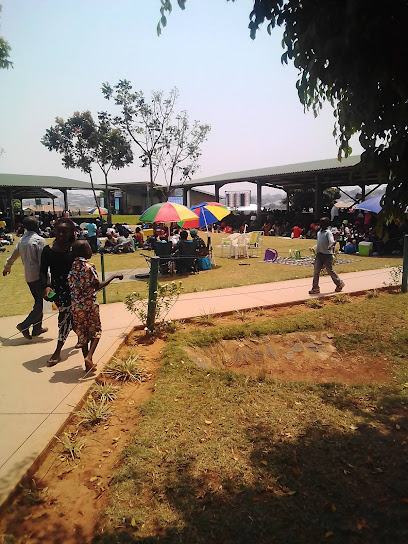
Kabushi
Explore the tranquil beauty of Kabushi in Ndola, Zambia, where nature meets cultural richness in a serene escape from city life.
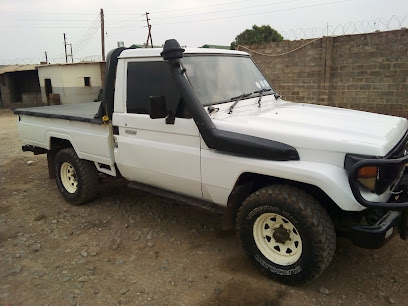
Monument
Explore the Monument in Ndola, a historical landmark that embodies Zambia's rich heritage and vibrant culture, inviting tourists to delve into its storied past.
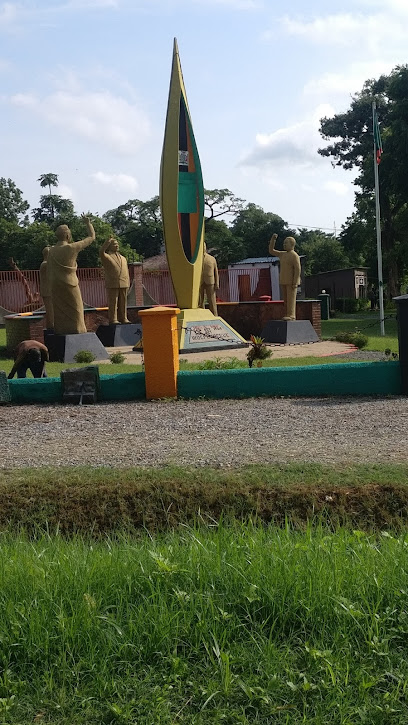
Kabushi United Church of Zambia
Discover the serene beauty and community spirit at Kabushi United Church of Zambia in Ndola, a must-visit for cultural and spiritual exploration.

Kabushi Masjid
Discover the tranquil beauty and rich cultural heritage of Kabushi Masjid in Ndola, a serene oasis inviting travelers to explore spiritual traditions.

Slave tree
Explore the Slave Tree in Ndola, a powerful symbol of resilience and history, offering insights into Zambia's heritage and the journey towards freedom.

KABUSHI AME CHURCH
Experience the serene beauty and cultural significance of Kabushi Ame Church in Ndola, a must-visit spiritual landmark in Zambia.
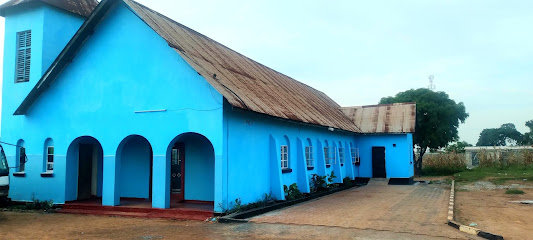
Kabushi Baptist Church
Discover the spiritual essence of Ndola at Kabushi Baptist Church, a serene space of worship and community engagement in Zambia.

Virgin Mary Grotto
Discover the tranquil oasis of Virgin Mary Grotto in Ndola, Zambia, where nature meets spirituality in a serene park setting.
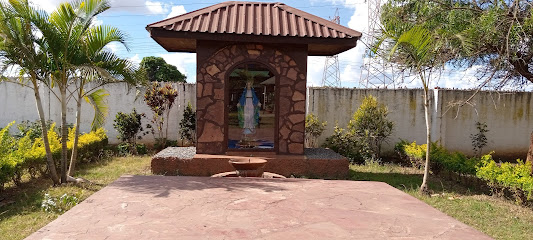
Unmissable attractions to see
Copperbelt Museum
Explore Zambia's rich mining history at the Copperbelt Museum in Ndola, where culture and heritage come alive through engaging exhibits.
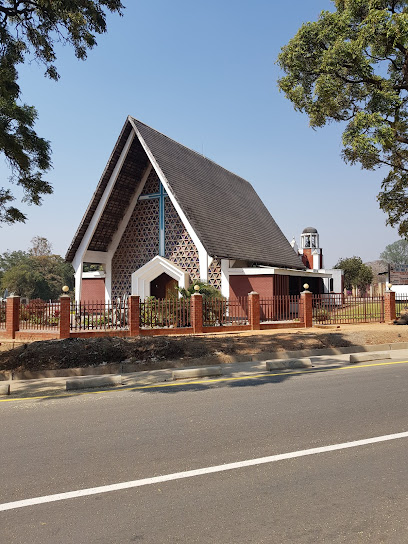
Minsundu Recreational Park
Experience the tranquility of Minsundu Recreational Park in Ndola, Zambia – a perfect getaway for nature lovers and outdoor enthusiasts.
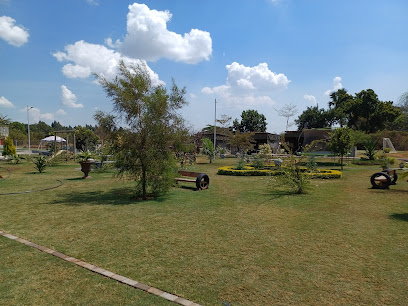
Dag Hammarskjöld Crash Site Memorial
Explore the Dag Hammarskjöld Crash Site Memorial, a historical tribute in Ndola that honors the legacy of diplomacy and peace.
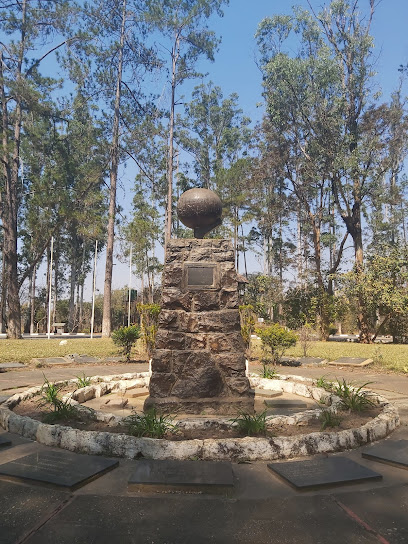
Bethsaida
Discover the tranquility of Bethsaida Park in Ndola, a serene retreat filled with lush greenery and outdoor activities, perfect for relaxation and exploration.
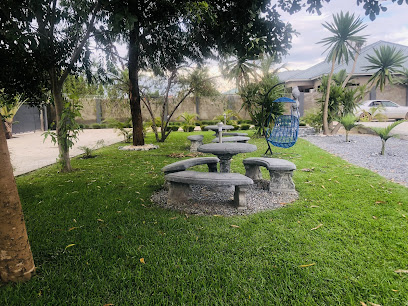
Ishiku Sunken Lake
Experience the serene beauty of Ishiku Sunken Lake, a tranquil oasis in Ndola, perfect for relaxation and outdoor adventures in Zambia.

Slave tree
Explore the Slave Tree in Ndola, Zambia: a historic landmark of resilience, beauty, and a poignant reminder of the region's past.

Eden farm
Discover the tranquil beauty of Eden Farm in Ndola, a perfect escape for nature lovers and families alike, surrounded by vibrant flora and serene landscapes.

Heaven palace
Experience the enchanting beauty and cultural richness of Heaven Palace in Ndola, a serene escape for nature lovers and cultural enthusiasts alike.

Muzi
Discover the tranquil beauty of Muzi, a serene garden in Ndola that offers a perfect escape for nature lovers and peace seekers alike.

Kabushi
Explore the serene beauty of Kabushi Garden in Ndola, a perfect escape into nature with lush greenery and vibrant flora.

Essential places to dine
Bo'Jangles Pub Grill & Pizzeria
Discover delicious pizzas and local favorites at Bo'Jangles Pub Grill & Pizzeria in Ndola's Kafubu Mall – a culinary hotspot for every food lover.
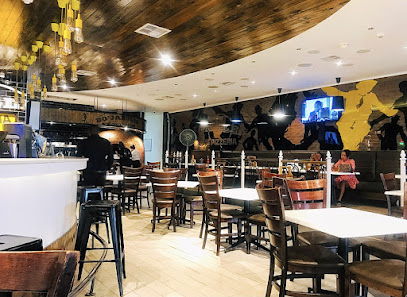
Copper Canyon Spur
Discover the rich flavors of Africa at Copper Canyon Spur – where every meal is a celebration of taste in Ndola's Kafube Mall.
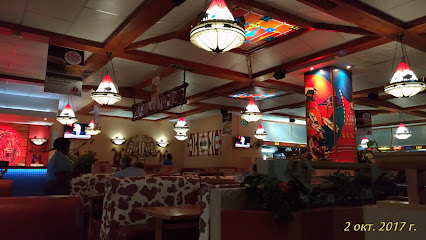
Hungry Lion Kafubu
Discover the best fried chicken and fast food experience at Hungry Lion Kafubu in Ndola - where flavor meets convenience!
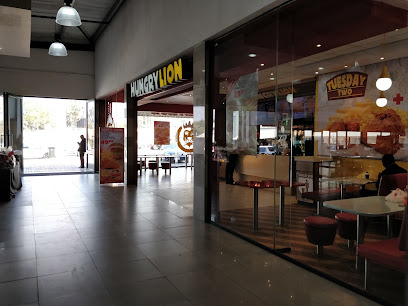
Leonidas Restaurant & Lounge
Experience the best of Zambian cuisine at Leonidas Restaurant & Lounge in Ndola - where flavor meets hospitality.
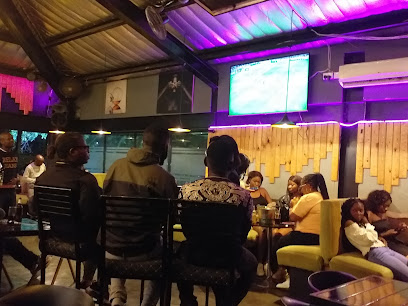
Softlink Pub Ñ Grill
Discover Ndola's culinary gem at Softlink Pub Ñ Grill, where flavorful grilled dishes meet a vibrant social atmosphere.
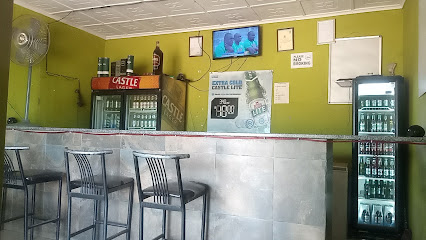
Wachi's Kitchen
Experience authentic Zambian flavors at Wachi's Kitchen in Ndola - where tradition meets taste in every dish.

Primus Motel
Discover the authentic flavors of Zambia at Primus Motel in Ndola - where delicious cuisine meets warm hospitality.
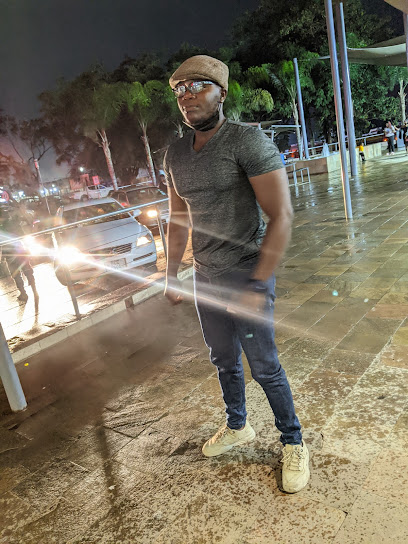
Salome's restaurant
Discover authentic Zambian cuisine at Salome's Restaurant in Ndola's Kabushi Mall – where every meal is a celebration of flavor.
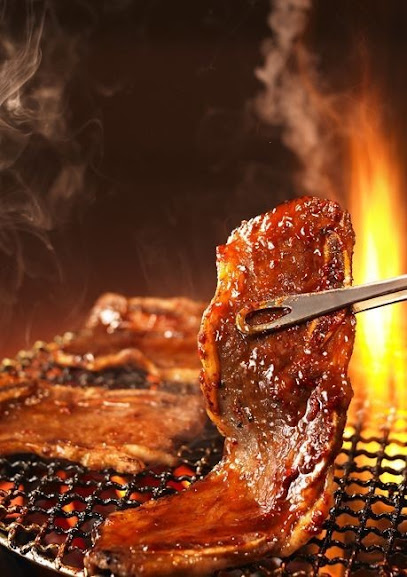
House Of Foods
Experience the rich flavors of Zambia at House Of Foods in Ndola - where tradition meets taste.

Lori's Yummies Parlour
Experience the delicious flavors of Ndola at Lori's Yummies Parlour, where fast food meets local delight in every bite.

Markets, malls and hidden boutiques
A & M shop
Explore the vibrant A & M Shop in Ndola for a unique blend of local crafts and essentials that showcase Zambian culture and creativity.
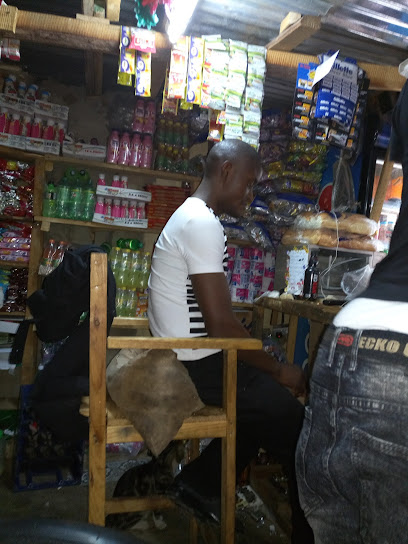
THE KABUSHI SHOPPING ARCADE
Explore the vibrant Kabushi Shopping Arcade in Ndola, where local crafts and delicious street food come together in a colorful cultural celebration.
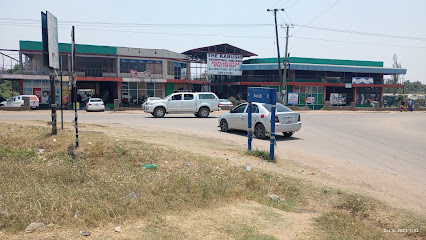
THE KABUSHI SHOPPING ACARDE
Explore the vibrant Kabushi Shopping Arcade in Ndola, where shopping meets culture, offering a delightful experience for every traveler.
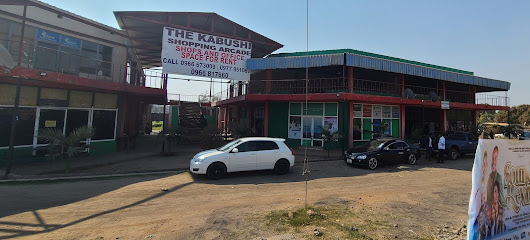
Music blog
Experience the rich sounds of Zambia at Ndola's vibrant music store, a cultural hub for music lovers and tourists alike.

Liseli's fashion store
Explore Liseli's Fashion Store in Ndola for unique clothing styles that blend local culture with contemporary fashion trends.
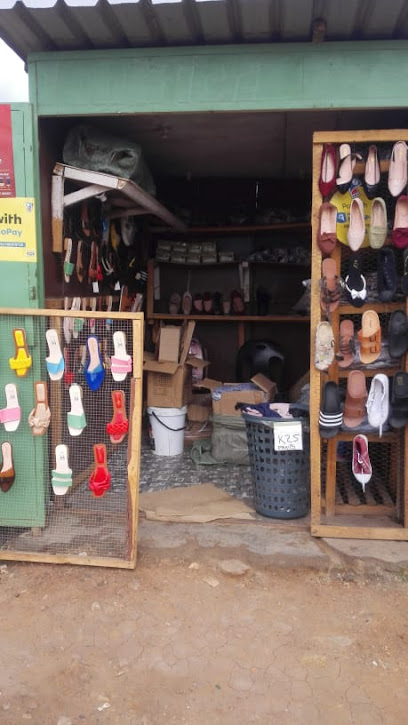
Jk Corner Point Shop
Explore Ndola's vibrant shopping scene at Jk Corner Point Shop, where local culture meets convenience in a delightful setting.
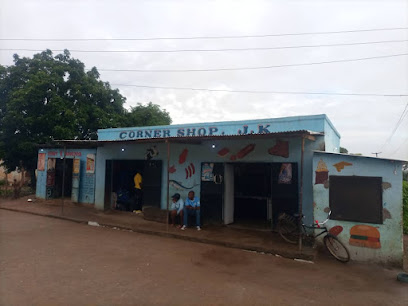
GC Stationary and Barbershop
Discover creativity and style at GC Stationary and Barbershop in Ndola, where quality stationery meets professional grooming services.

CHISENGA’s FAMILY BOUTIQUE
Discover vibrant Zambian fashion at CHISENGA’s FAMILY BOUTIQUE in Ndola, where local craftsmanship meets contemporary style.

Nalikwanda
Explore Nalikwanda in Ndola for authentic Zambian home goods that blend tradition and modernity, perfect for souvenirs and enriching your living space.

One famy
Discover the essence of Zambian craftsmanship at One Famy, a unique home goods store in Ndola offering a variety of unique and culturally rich items.

Essential bars & hidden hideouts
The Complex(hideout)
Experience the vibrant nightlife at The Complex in Ndola, where great drinks and local culture come together.
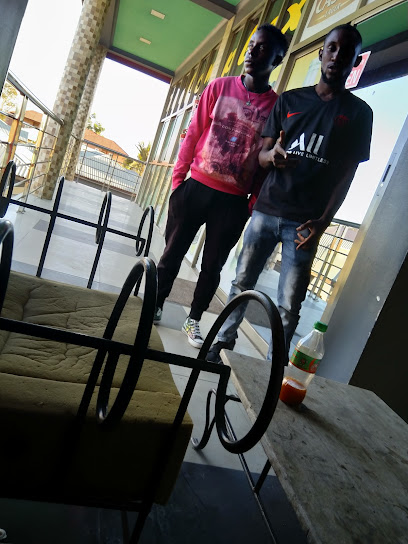
Softlink Pub Ñ Grill
Experience the vibrant flavors of Ndola at Softlink Pub Ñ Grill, where local dishes meet a welcoming atmosphere for unforgettable dining.
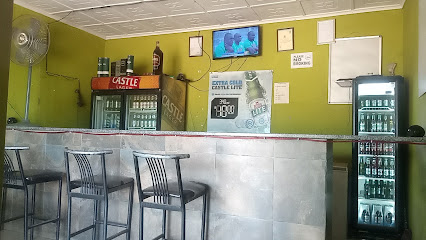
Thrills Pub And Grill
Discover the lively nightlife and delicious cuisine at Thrills Pub And Grill in Ndola, where every visit is a celebration of local culture.
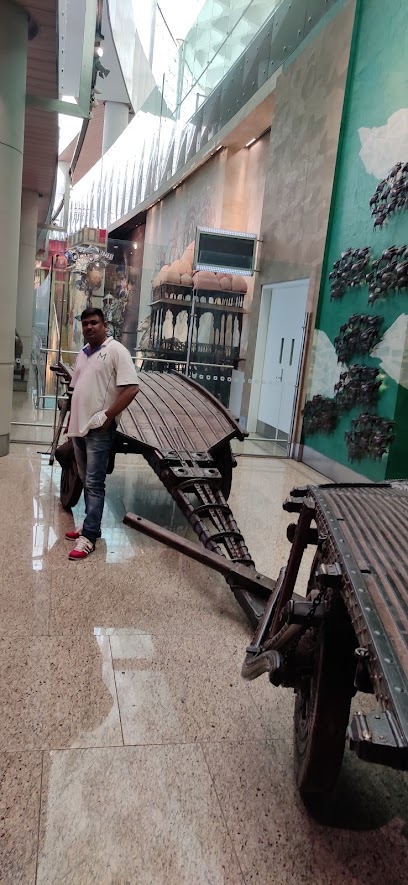
Johnny's Pub & Grill
Savor the vibrant flavors of Ndola at Johnny's Pub & Grill, offering delicious grilled dishes in a lively and welcoming atmosphere.
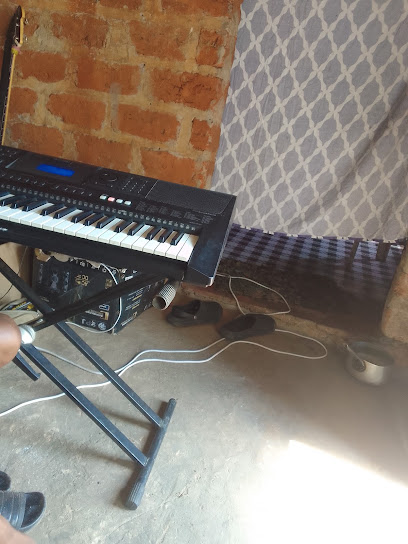
berc
Discover Berc, a cozy bar in Ndola, Zambia, where locals and tourists alike gather for drinks and good times in a relaxed atmosphere.
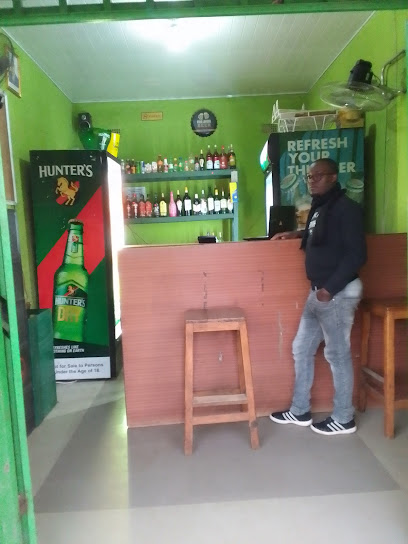
man kid nite club
Discover the vibrant nightlife at Man Kid Night Club in Ndola, where local music meets contemporary beats in an unforgettable atmosphere.

Pa Khuma
Discover the lively spirit of Ndola at Pa Khuma, a bar that offers a unique blend of local charm and modern comfort in the heart of Zambia.

Kazeza park
Experience the vibrant atmosphere of Kazeza Park, Ndola's charming pub where local culture meets relaxation and entertainment.

The Hotspot Pub & Grill
Experience the vibrant atmosphere and local flavors at The Hotspot Pub & Grill in Ndola, your go-to destination for food and fun.
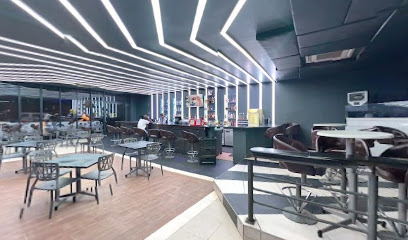
KMC Pub & Grill Ndola
Experience the vibrant ambiance and delicious grilled cuisine at KMC Pub & Grill Ndola, a culinary gem in Zambia.
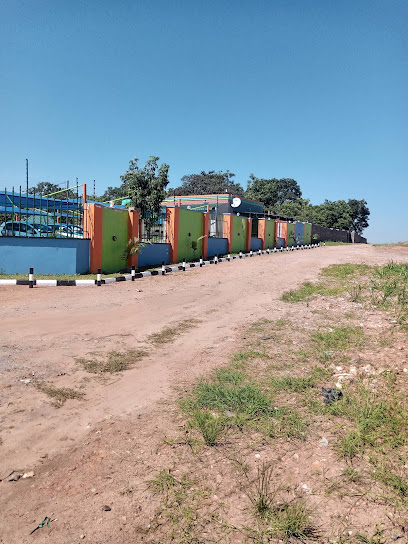
Local Phrases
-
- HelloMwaiseni
[Mwai-se-ni] - GoodbyeBaadwe
[Baad-we] - YesEe
[Ee] - NoAyee
[A-yee] - Please/You're welcomeMwaiseni
[Mwai-se-ni] - Thank youTatashani
[Ta-ta-sha-ni] - Excuse me/SorryNshilefwaya
[Nshi-lef-wa-ya] - How are you?Uli shani?
[U-li sha-ni] - Fine. And you?Ndeli, kwaliba iwe?
[Nde-li, kwa-li-ba i-we] - Do you speak English?Uleti ukusebanya nge English?
[U-le-ti u-ku-se-ba-nya nge English] - I don't understandNshilefwaya
[Nshi-lef-wa-ya]
- HelloMwaiseni
-
- I'd like to see the menu, pleaseNdefwaya ukuteka menu, nangu musanga
[Nde-fwa-ya u-ku-te-ka menu, nan-gu mu-san-ga] - I don't eat meatNshilefwaya ukulya inswa
[Nshi-lef-wa-ya u-ku-lya in-swa] - Cheers!Twapenda!
[Twa-pen-da] - I would like to pay, pleaseNdefwaya ukulipa, nangu musanga
[Nde-fwa-ya u-ku-li-pa, nan-gu mu-san-ga]
- I'd like to see the menu, pleaseNdefwaya ukuteka menu, nangu musanga
-
- Help!Chinja!
[Chi-nja] - Go away!Lesa ulekwate
[Le-sa u-le-kwa-te] - Call the Police!Lesa ulekele polisi
[Le-sa u-le-ke-le po-li-si] - Call a doctor!Lesa ulekele dokota
[Le-sa u-le-ke-le do-ko-ta] - I'm lostNshilefwaya
[Nshi-lef-wa-ya] - I'm illNshilefwaya
[Nshi-lef-wa-ya]
- Help!Chinja!
-
- I'd like to buy...Ndefwaya ukubepa...
[Nde-fwa-ya u-ku-be-pa] - I'm just lookingNdimona fye
[Ndi-mo-na fye] - How much is it?Ni shani iyo?
[Ni sha-ni i-yo] - That's too expensiveIyo yalibola sana
[I-yo ya-li-bo-la sa-na] - Can you lower the price?Ukeni ukubikatapepo cipande?
[U-ke-ni u-ku-bi-ka-ta-pe-po ci-pan-de]
- I'd like to buy...Ndefwaya ukubepa...
-
- What time is it?Ni ishiku shani?
[Ni i-shi-ku sha-ni] - It's one o'clockIshi na ishiku ichinsenga
[I-shi na i-shi-ku i-chin-sen-ga] - Half past (10)Ishi na ishiku isano
[I-shi na i-shi-ku i-sa-no] - MorningMubweo
[Mu-bwe-o] - AfternoonMunti
[Mun-ti] - EveningMushi
[Mu-shi] - YesterdayLishiku lya nyuma
[Li-shi-ku lya nyu-ma] - TodayLishiku lya lelo
[Li-shi-ku lya le-lo] - TomorrowLishiku lya mawa
[Li-shi-ku lya ma-wa] - 1Mo
[Mo] - 2Ba
[Ba] - 3Ta
[Ta] - 4Ne
[Ne] - 5Nya
[Nya] - 6Nanu
[Na-nu] - 7Luanu
[Lu-a-nu] - 8Kawalala
[Ka-wa-la-la] - 9Kawalala na mo
[Ka-wa-la-la na mo] - 10Kawalala na ba
[Ka-wa-la-la na ba]
- What time is it?Ni ishiku shani?
-
- Where's a/the...?Iyo ifye...?
[I-yo i-fye] - What's the address?Ni shani ifyo icilanda?
[Ni sha-ni i-fyo i-ci-lan-da] - Can you show me (on the map)?Ukeni ukunyenga ine (pa mepu)?
[U-ke-ni u-ku-nyen-ga i-ne (pa me-pu)] - When's the next (bus)?Ni shani icili?
[Ni sha-ni i-ci-li] - A ticket (to ....)Cipande (pa ...)
[Ci-pan-de (pa)]
- Where's a/the...?Iyo ifye...?
History of Kabushi
-
Kabushi, a neighbourhood in Ndola, emerged in the early 20th century as a result of Ndola's rapid growth due to copper mining. Originally a small settlement, it became more prominent as people migrated to the area seeking employment in the burgeoning copper industry. This influx of workers contributed to the cultural diversity of Kabushi, with inhabitants from various ethnic backgrounds coexisting and enriching the local culture.
-
After Zambia gained independence in 1964, Kabushi experienced significant changes as the government implemented policies aimed at urban development and social welfare. The neighbourhood saw improvements in infrastructure, education, and health services, which were crucial for the local population. This era marked a sense of optimism and national identity, influencing the cultural fabric of Kabushi.
-
In the late 20th century, Kabushi became known for its vibrant community initiatives. Local leaders and residents organized programs aimed at addressing social issues, such as education and health. These grassroots movements fostered a sense of unity and belonging, encouraging cultural activities that celebrated Zambian traditions and values. Festivals, local arts, and crafts became essential components of Kabushi's identity during this period.
-
The turn of the 21st century brought challenges to Kabushi, including economic hardships and urbanization pressures. Despite these obstacles, the community demonstrated resilience. Residents adapted by engaging in informal trade and small-scale businesses, which contributed to the local economy. The neighbourhood has continued to develop, balancing modernity with its rich cultural heritage.
-
Today, Kabushi reflects a blend of traditional Zambian culture and modern influences. The neighbourhood is characterized by its communal spaces, local markets, and cultural events that showcase the creative expressions of its residents. The influence of Ndola's overall development can be seen in Kabushi, as the neighbourhood continues to grow while maintaining a strong connection to its historical roots.
Kabushi Essentials
-
Kabushi is accessible from various neighborhoods in Ndola. If you're coming from the Ndola central area, you can take a local minibus (commonly known as a 'kombi') that operates frequently between central Ndola and Kabushi. The journey typically takes about 20-30 minutes, depending on traffic. Alternatively, taxis are readily available and can provide a more direct route. For those arriving from Ndola's airport, pre-arranged taxi services are recommended.
-
Kabushi is best explored on foot or by bicycle, as many local attractions are within walking distance. Local minibuses are a popular and affordable option for longer distances within Ndola. Taxis are also available and can be hired for convenience. For a unique experience, consider renting a bicycle to navigate through Kabushi and interact with the local community.
-
While Kabushi is generally a safe neighborhood, tourists should remain vigilant. Areas near the bus stations can experience petty crime, including pickpocketing. It's advisable to avoid walking alone at night, especially in poorly lit areas. Always keep your belongings secure and be mindful of your surroundings.
-
In case of emergency, dial 999 for police assistance or 993 for medical emergencies. The local police station is located in Ndola central, and there are several clinics and hospitals in the area. It’s advisable to carry a list of important contacts and have travel insurance that covers medical emergencies.
-
Fashion: Do dress modestly, especially in local markets and when visiting religious sites. Avoid shorts and sleeveless tops. Religion: Do respect local customs; always ask before taking photos in places of worship. Public Transport: Do give your seat to elderly passengers; don't eat or drink on public transport. Greetings: Do greet locals with a friendly handshake; avoid being overly familiar until you know someone well. Eating & Drinking: Do try local dishes and accept food offerings; don't refuse hospitality, as it can be seen as rude.
-
To experience Kabushi like a local, visit the nearby markets early in the morning for the freshest produce. Engage with vendors and locals, as they often share valuable insights about the community. If you have the opportunity, attend a local event or festival to immerse yourself in the culture. Don't hesitate to ask for help or directions, as residents are generally friendly and willing to assist.
-
Understanding local customs is key to enjoying your visit. When greeting someone, a polite handshake is common. It's also customary to inquire about someone's well-being or family as a form of respect. If invited to a local home, bringing a small gift, such as fruit or snacks, is appreciated. Always use your right hand for giving and receiving items, as the left hand is considered impolite in many situations.
-
Don't miss trying local dishes such as nshima, a staple made from maize, often served with a variety of relishes like vegetables or meat. Street food is widely available; be sure to try local snacks like kapenta (small fish) and biltong (dried meat). Always ensure food is cooked thoroughly before consuming, especially from street vendors.
Nearby Cities to Kabushi
-
Things To Do in Kitwe
-
Things To Do in Kabwe
-
Things To Do in Solwezi
-
Things To Do in Lusaka
-
Things To Do in Kariba
-
Things To Do in Kasama
-
Things To Do in Chipata
-
Things To Do in Chinhoyi
-
Things To Do in Lilongwe
-
Things To Do in Harare
-
Things To Do in Mzuzu
-
Things To Do in Livingstone
-
Things To Do in Victoria Falls
-
Things To Do in Nkhata Bay
-
Things To Do in Salima





